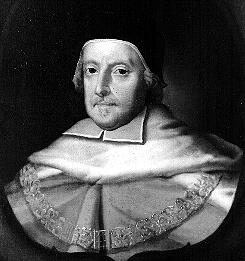| Profile | Major Works | Resources |
Sir Matthew Hale, 1609-1676.

Matthew Hale was born in Alderley, Gloucestershire, descended from an eminent family of cloth merchants and lawyers. Orphaned early, Matthew Hale was raised by an uncle, of Puritan leanings. In 1626, at the age of seventeen, Matthew Hale enrolled at Magdalen Hall, Oxford University, where he was quickly entranced by its cavalier atmosphere of drinking, dueling and theater. Forsaking his uncle's desires to become a divine, Hale determined to enter a more adventurous life in the military, and was briefly attached to Maurice of Orange's army in the Netherlands. A lawsuit over his inheritance of his late father's estate prompted Hale to return to England, and research the law to defend his case. It was then that he determined to give up his dissolute pursuits and study law seriously, enrolling at Lincoln's Inn in late 1629.
Called to the bar in 1637, Hale ascended in the legal profession. Although a royalist by inclination, Hale tried to remain neutral in the political tumult and English Civil War of the 1640s. Hale signed the Solemn Covenant of 1644 and was one of the chief negotiators for the surrender of Oxford in 1645, but subsequently sought to bring about reconciliation between King and Parliament (to no avail) and defended royalists in several court cases. Despite his independence, Oliver Cromwell appointed Hale a judge of the Court of Common Pleas in 1653. During the English Protectorate period, Hale sat as a member of the parliaments of 1654 and 1658, and tried to steer a moderate course. After the death of Cromwell in 1658, Hale resigned from public life, returning only in the Convention Parliament of 1660 to approve the Restoration of monarchy. Hale was knighted and appointed Lord Chief Baron of the Exchequer in 1660 by King Charles II. In 1671, Sir Matthew Hale became Lord Chief Justice of the King's Bench. Hale resigned in February 1676 on account of health, dying at the end of the same year (Dec 25).
Most of Hale's works were published posthumously. Among the notable economic-related tracts were his essay on population (1677) and on the Poor Laws (1683), where he recommended the establishment of workhouses. Hale's histories of the Pleas of the Crown (1682) and Common Law (1713), while idiosyncratic, are generally well-regarded by law historians.
|
Major Works of Sir Matthew Hale
|
|
HET
|
|
Resources on Matthew Hale
|
All rights reserved, Gonšalo L. Fonseca
